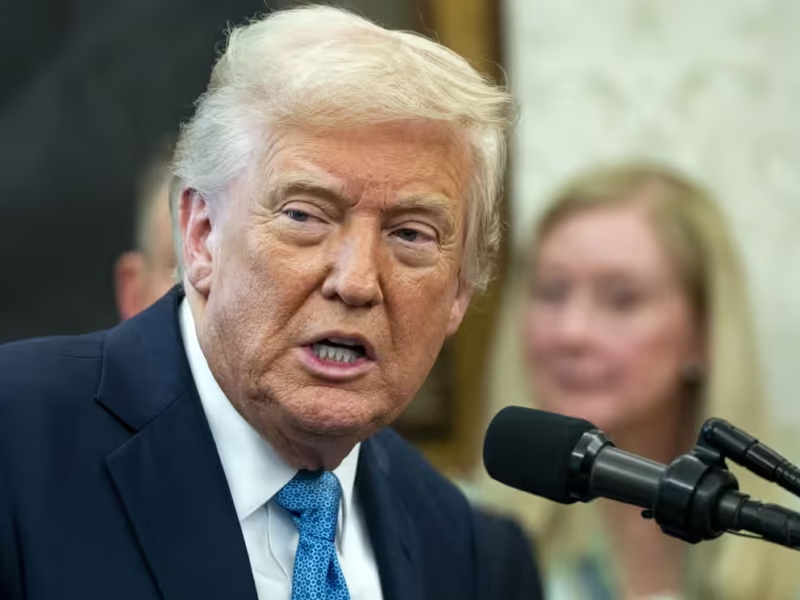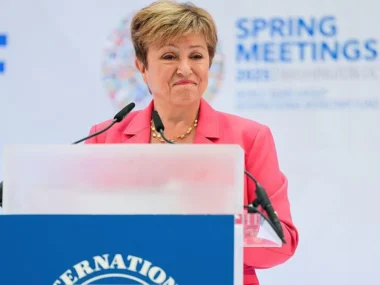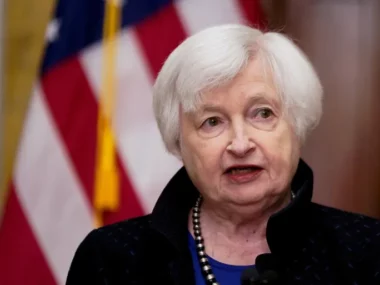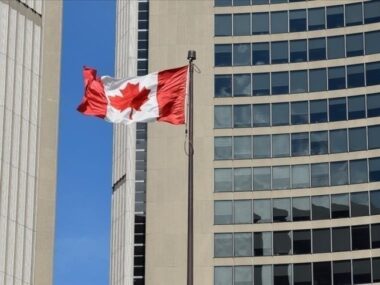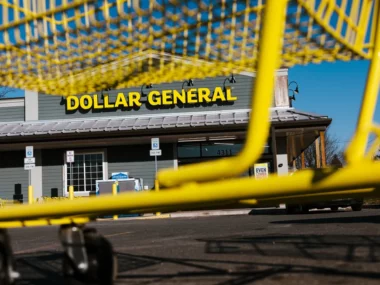After weeks of strong rhetoric from the US president, who now claims he will be “very nice” to China, investors were unsettled.
Global stock markets surged after Donald Trump announced that tariffs on China would be significantly reduced and that he had “no intention” of firing Jerome Powell, the chair of the US Federal Reserve.
Following weeks of tough rhetoric from White House officials that unsettled investors, Trump appeared to soften his stance. On Tuesday, he told reporters in Washington that he intended to be “very nice” to China in trade talks and suggested that tariffs could decrease in both countries if a deal was reached, adding, “It will come down substantially, but it won’t be zero.”
In Asia, Japan’s Nikkei rose by nearly 2%, Hong Kong’s Hang Seng climbed 2.4%, and South Korea’s Kospi gained 1.6%. The positive momentum spread to Europe on Wednesday, with the UK’s FTSE 100 up 1.6%, Italy’s FTSE MIB rising 1.1%, Germany’s DAX increasing 2.6%, and France’s CAC up 2.1%.
US stocks also opened strong on Wednesday, with the Dow gaining over 800 points and the Nasdaq Composite climbing more than 3%. While the rally slowed in the afternoon, all major stock markets ended the day higher.
US Treasury Secretary Scott Bessent also took a more optimistic tone regarding China, stating at the Institute of International Finance in Washington DC that China “knows it needs to change.” He suggested that both countries could work together on rebalancing trade and that the US could expect a “de-escalation” of the trade war in the near future.
Investor confidence grew further when Trump indicated he would not fire Powell, reversing earlier remarks where he had criticized the Fed chair. Trump had previously suggested Powell could be dismissed before his term ends in May next year. This assurance, along with the possibility of lower tariffs on Chinese imports, helped boost stocks.
The US dollar, which had fallen to a three-year low on Tuesday, rose 0.25% against a basket of major currencies. Oil prices also increased, with Brent crude surpassing $68 a barrel, driven by hopes that lower tariffs would benefit the global economy and by new US sanctions targeting Iranian oil. Gold, typically a safe-haven asset, retreated from its recent high of $3,500 an ounce to about $3,307.

